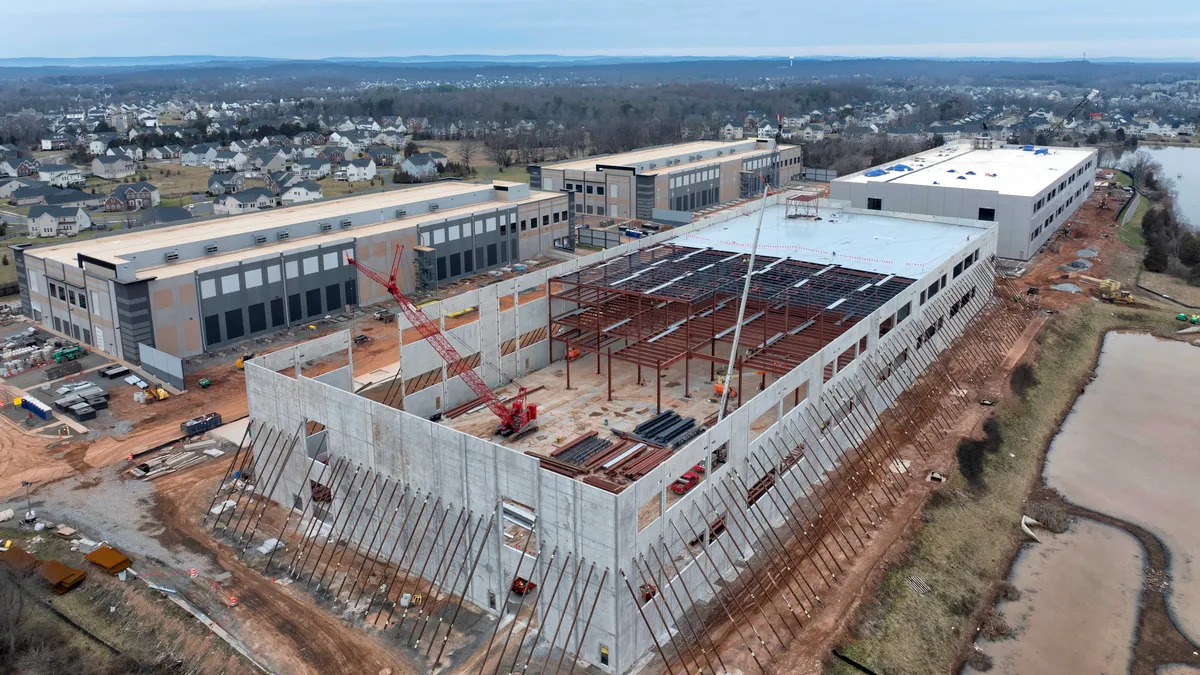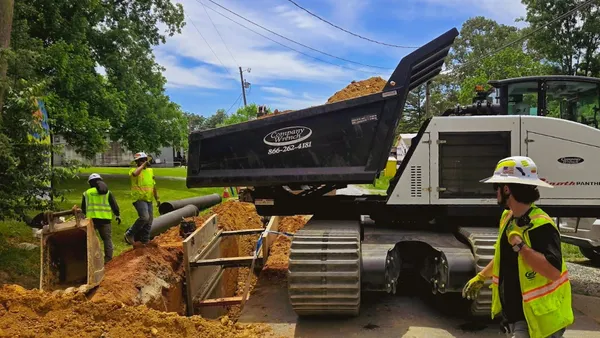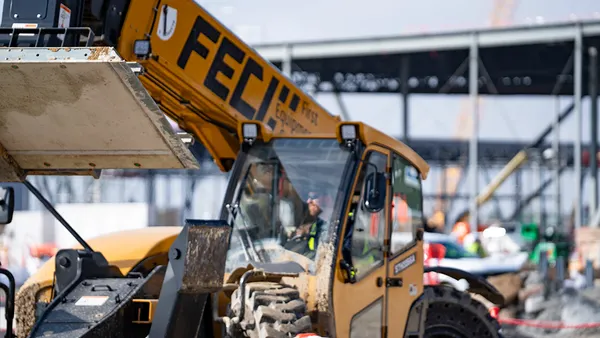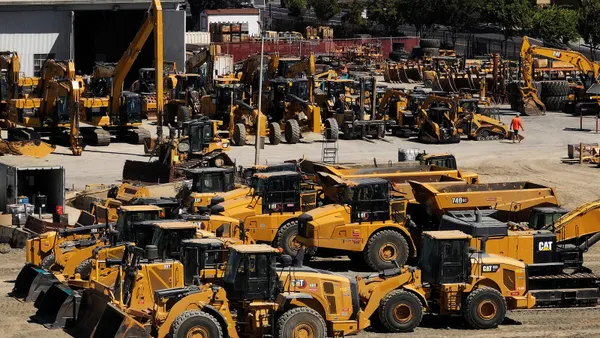Dive Brief:
- Balfour Beatty announced this week that it has been chosen to manage the construction of a 13-story, 325,000-square-foot Toll Bros. Apartment Living project called the Osprey in midtown Atlanta, and that it will use modular, offsite construction firm Prescient to build the tower structure.
- Prescient will prefabricate and install wall panels and structural columns, as well as precast balconies, stairs and infill framing, making the 319-unit Osprey one of the first projects in Atlanta to use Prescient for vertical construction. In addition to the tower, the apartment project will also include two five-story wood frame buildings, a seven-story parking garage with 540 spaces, penthouse units with private outdoor living areas on the two top floors, 30,000 square feet of interior service and retail space, an outdoor pool, a fitness center and other amenity spaces. Brock Hudgins Architects, S.A. Miro, M2 Structural and Proficient Engineering make up the project design team.
- Balfour Beatty said offsite prefabrication will allow for a more efficient construction process than post-tensioned concrete frame and other common load-bearing structural framing systems. The company said that early collaboration with other trades during the planning process will allow the prefabricated units to be completed several months sooner than if it had used more traditional methods. Installation of the Prescient tower structure should start by the end of the first quarter of 2019, and project completion is scheduled for the first quarter of 2020.
Dive Insight:
Prescient's first Atlanta project, the 17-story Generation Atlanta residential tower, broke ground last month. Kaplan Residential is the developer, and company officials expect using Prescient's offsite system will save between 20% to 25% on project costs compared to traditional methods.
The Kaplan and Toll Bros. projects, along with others around the U.S., represent the expansion of the offsite prefabrication trend as construction companies struggle to combat shrinking labor pools and rising construction costs. From hotels to bridges, owners and contractors are using the closest thing the construction business has to the assembly line processes that have transformed other industries.
In addition, offsite construction can positively impact safety because work that is normally done at sometimes dizzying heights is brought down to the factory floor level, drastically reducing the chances that someone will fall. That's a major step forward for the construction industry, as falls, according to OSHA, are among the top causes of serious injury or death on a jobsite, and fall protection is always at or near the top of the agency's list of its most-violated standards.













